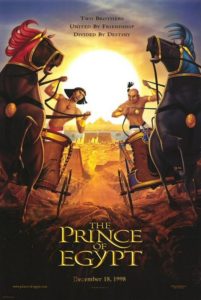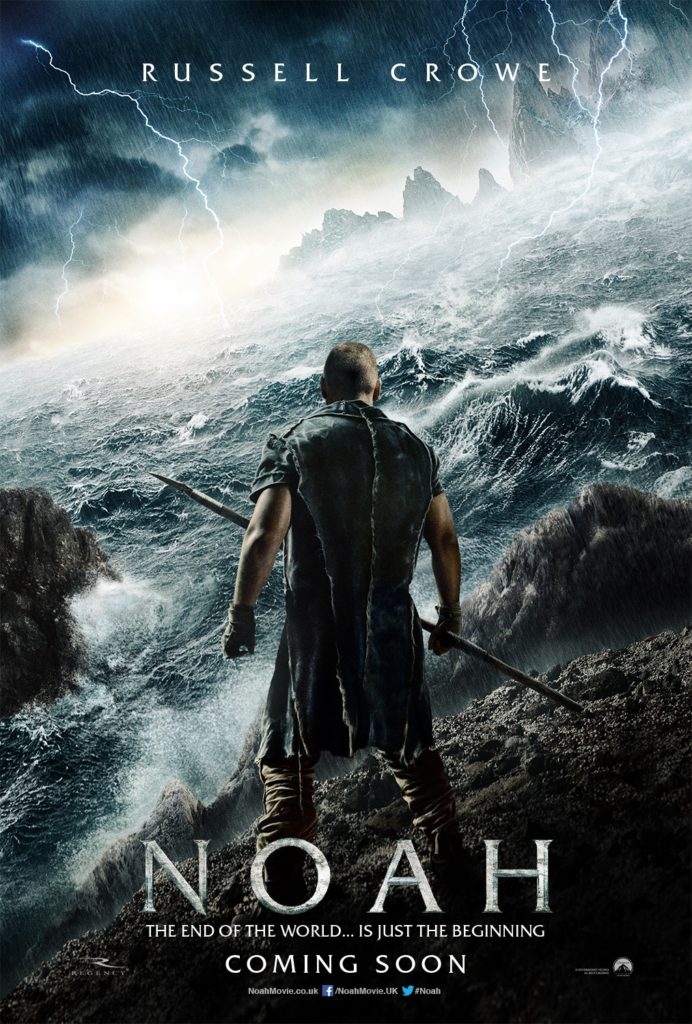Will Poor Adaptation Sink Aronofsky’s ‘Noah’ Film?
 The Hollywood Reporter has an update on the upcoming Noah film by Darren Aronofsky.
The Hollywood Reporter has an update on the upcoming Noah film by Darren Aronofsky.
From this excerpt, the film sounds not-so-great.
[Paramount Pictures vice chair Rob] Moore says Aronofsky’s Noah is not in the more literal vein of the blockbuster Bible series produced for the History channel by Mark Burnett and Roma Downey. “They’ve been very effective in terms of communicating to and being embraced by a Christian audience,” says Moore. “This movie has a lot more creativity to it. And therefore, if you want to put it on the spectrum, it probably is more accurate to say this movie is inspired by the story of Noah.”
From this excerpt, the film sounds more promising:
Aronofsky, who grew up in a conservative Jewish household, says his goal from the start was to make a Noah for everyone. For nonbelievers, he wanted to create “this fantastical world a la Middle-earth that they wouldn’t expect from their grandmother’s Bible school.” At the same time, he wanted to make a film for those “who take this very, very seriously as gospel.”
So what if the film somehow manages to be both these things?
Though I haven’t seen the Burnett/Downey Bible series Moore mentioned, I understand that series also takes liberties with Biblical details — but sticks to the central Story. Other Biblical films play loose with details but keep the central themes of Scripture, such as The Ten Commandments or The Prince of Egypt (based on Exodus), One Night With the King (based on Esther) and any film based on the Gospels.
That’s all I want from Noah, based on this film-adaptation checklist I incidentally made up in a review of The Hobbit: The Desolation of Smaug.
- Is the film as close as possible to the book’s details?
- Is the film as close as possible to the book’s themes?
- Does the film at least not contradict the book’s details?
- Does the film at least not contradict the book’s themes?
- If none of the above: is it at least something the author could have written in a parallel universe?

More chariot races and sibling rivalry — but God in The Prince of Egypt is much as He is in the original Story.
How could Noah pass or fail this film-adaptation checklist?
- If Noah’s title character drinks, that’s defensible by step 1 (and step 3). Scripture does show Noah drunk after the Flood (Gen. 9: 18–29).
- If the story indeed shows hope for humanity through a central salvation, even with a flawed hero, Noah passes step 2.
- If the film shows Noah as a fantasy hero, Christians should have no objection. Scripture doesn’t describe the famed boat-builder’s occupation at all. But if the film blends Shem and/or Ham and/or Japheth into one character, that does violate no. 3 — just like every other film based on the Bible. (The Ten Commandments: Pharaoh exiles Moses. Prince of Egypt: not-yet pharaoh Rameses offers to cover up for Moses.) Christians disagree on this, but in my view the film hasn’t utterly failed yet. There’s still step 4.
- The film could overall fail at this step. Unlike with manmade films — whose mangling of their original story themes I can only occasionally tolerate — I cannot abide a story based on Scripture that can’t get the themes right. So if Noah indeed focuses on “overpopulation” (a modern myth that never even mentioned in the Genesis account) or even worse, portrays a God Whose nature is contradictory or Who flirts with destroying humanity entirely, that would sink this ship.
- Noah can’t even swim to shore clinging to my no. 5 flotsam, because Christians believe our God wrote this story into reality. He would never have written another one, especially one in which He Himself acted differently. (All the best stories, if they include God at all, will copy Him verbatim from the God of the Bible.)
Yet for the sake of great storytelling based on the greatest true-life Story, I hope Noah does swims strong — and draws intrigued viewers to the original Source, the eternal Word.





























The notion that it is even possible to copy God “verbatim” sounds strange, as if we could stuff the primary Axiom into a photocopy machine. We can’t copy God at all, we can only hope to reflect His light. Tolkien called human creators the “refracted light.” I guess refraction implies creative liberty and interpretation, while reflection implies more literally conveying the same thing. However, neither reflection nor refraction is copying.
Good post overall. I disagree with your final statement though. I don’t see that it’s true that all the best stories “if they include God at all” will quote verbatim from the God of the Bible. Narnia does not quote directly, yet Aslan is as much an allegory for God in general as of Christ…
“Copy” was meant to capture the idea of reflection. Thanks for a better word choice.
In an eternal sense, though, I might still be onto something. The very word Christian connotes “little Christ” or “copy of Christ.” And I’ve thought for a while that if we are copies of Christ, Christians’ stories ought to be similar, just one degree removed. As we are to Christ, so our stories’ heroes are to us. They’re Christian-ians. And so they will reflect/copy/whatever God, to whatever extent we can, even into eternity.
An even deeper theological question is whether they will allow Biblically based films in the New Earth — films that change details or even themes of Scripture sources. 🙂
Yes, I think “reflect” is a much better term than copy.
From the little I’ve read, it seems as if the Noah movie will be borrowing from Genesis and the Book of Enoch, but also from Sumerian and Babylonian Flood myths with their Noah-like character. Certainly an eclectic mix. I wonder if it’s close to the final product.
Which, by the way, is just catching up to ideas that Christian fantasy novelists have been doing for years, even decades. See the Nephilim tag in the SpecFaith Library.
I’m both excited and nervous about this movie. It could be spectacular . . . or it could be horrible. I’m just praying that, whatever the outcome, God is able to use it in some way to reach people for Him.
In a more general sense, I’m thrilled about the entertainment industry’s new interest in Scripture. There are so many stories in the Bible that would make fantastic movies. Noah is just one of them. Has anyone ever wanted to see a movie on the life of David, or is that just me?
Adultery, murder, war, politics, family angst — sure, I can totally see it on HBO as the next Game of Thrones-style series.
They made it as a series called Kings. I think it only had one season.
Stephen, I re-read this post in light of your comments re. Austin’s review of the movie, and I am somewhat mystified. You seem to not care about God’s character, yet here you name that factor as key to how you would view the movie. I guess I’m unclear about your position.
Becky